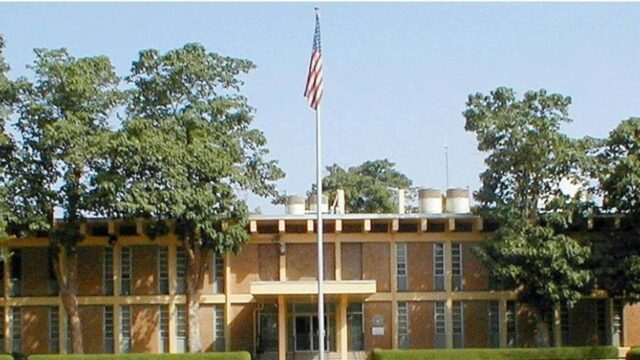
U.S. Embassy Niamey, Niger
The United States established diplomatic relations with Niger in 1960, following its independence from France. U.S. relations with Niger since its independence have generally been close and friendly. In 2010, a military junta took power after overthrowing the former president, who had tried to extend his rule unconstitutionally. Niger has taken important steps to consolidate and advance democratic institutions. President Mahamadou Issoufou was inaugurated in 2011, which returned Niger to constitutional, civilian rule. Security threats emanating from Libya, the Lake Chad Region, and Mali have hampered the government’s efforts to improve Niger’s economy, strengthen governance, promote human rights, and protect fundamental freedoms. Niger is a critical actor in regional efforts to counter terrorism and promote stability.
U.S. foreign assistance to Niger plays a critical role in preserving stability in a country vulnerable to political volatility, terrorism, the spread of violent extremism, food insecurity, and regional instability. U.S. assistance seeks to continue to improve food security, build counter-terrorism and peacekeeping capacity, sustain security sector reform, strengthen reproductive health and maternal and child health services, support productive agricultural enterprises, promote democracy and good governance, support prison and criminal justice sector reform, and strengthen security sector education and training. A $437 million Millennium Challenge Corporation compact, entered into force in January 2018, will strengthen Niger’s agricultural sector by improving water availability, roads, and market access.
Niger is one of the poorest countries in the world. Its largely agrarian and subsistence-based economy is frequently disrupted by extended droughts common to the Sahel region of Africa. U.S. exports to Niger include rice, vehicles, food-preparation goods, machinery, and fats and oils. Niger is eligible for preferential trade benefits under the African Growth and Opportunity Act. The United States has a trade and investment framework agreement with the Economic Community of West Africa, of which Niger is a member. Niger has signed a bilateral investment agreement with the United States.
Today the U.S. embassy is in Niamey.
Map Link:
Source:
United States Department of State, Office of the Historian and Bureau of African Affairs
Social Links:
https://www.facebook.com/U.S.EmbassyNiamey/